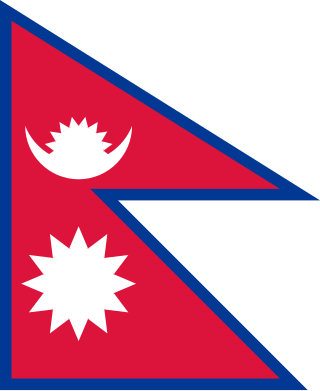Medal table
| Pos. | Country | 1 | 2 | 3 | Total |
|---|---|---|---|---|---|
| 1 | 1 | 2 | 1 | 4 | |
| 2 | 1 | 0 | 1 | 2 | |
| 2 | 1 | 0 | 1 | 2 | |
| 4 | 1 | 0 | 0 | 1 | |
| 5 | 0 | 1 | 0 | 1 | |
| 5 | 0 | 1 | 0 | 1 | |
| 7 | 0 | 0 | 1 | 1 |
Disabled skiing was a demonstration sport at the 1988 Winter Olympics . Contrary to the Paralympics, these events were demonstrations held during the Olympics.
| Pos. | Country | 1 | 2 | 3 | Total |
|---|---|---|---|---|---|
| 1 | 1 | 2 | 1 | 4 | |
| 2 | 1 | 0 | 1 | 2 | |
| 2 | 1 | 0 | 1 | 2 | |
| 4 | 1 | 0 | 0 | 1 | |
| 5 | 0 | 1 | 0 | 1 | |
| 5 | 0 | 1 | 0 | 1 | |
| 7 | 0 | 0 | 1 | 1 |
February 21, 1988
| Place | Athlete | Score |
|---|---|---|
| 1 | 1'21"10 | |
| 2 | 1'22"87 | |
| 3 | 1'25"60 |
February 17, 1988
| Place | Athlete | Score |
|---|---|---|
| 1 | 18'51"2 | |
| A. Homb (guide) | ||
| 2 | 19'29"7 | |
| R. Stridh (guide) | ||
| 3 | 19'48"6 | |
| K. Ulvang (guide) |
February 21, 1988
| Place | Athlete | Score |
|---|---|---|
| 1 | 1'26"41 | |
| 2 | 1'32"86 | |
| 3 | 1'34"87 |
February 17, 1988
| Place | Athlete | Score |
|---|---|---|
| 1 | 22'56"3 | |
| S. Haberl (guide) | ||
| 2 | 23'00"1 | |
| Viljaharju (guide) | ||
| 3 | 26'59"3 | |
| M. Pucher (guide) |

The 1988 Summer Olympics, officially known as the Games of the XXIV Olympiad and commonly known as Seoul 1988, was an international multi-sport event held from 17 September to 2 October 1988 in Seoul, South Korea. 159 nations were represented at the games by a total of 8,391 athletes. 237 events were held and 27,221 volunteers helped to prepare the Olympics.

The 1988 Winter Olympics, officially known as the XV Olympic Winter Games and commonly known as Calgary 1988, was a multi-sport event held from February 13 to 28, 1988, in Calgary, Alberta, Canada. It was the first Winter Olympic Games to be held for 15 days, like the counterpart Summer Olympic Games. The majority of the contested events took place in Calgary itself. However, the skiing events were held west of the city at the Nakiska ski resort in Kananaskis Country and the Canmore Nordic Centre Provincial Park in the town of Canmore.

Olympic sports are contested in the Summer Olympic Games and Winter Olympic Games. The 2020 Summer Olympics included 33 sports; the 2022 Winter Olympics included seven sports. Each Olympic sport is represented by an international governing body, namely an International Federation (IF).
At the 1932 Winter Olympics, four speed skating events were contested. For the only time in the Olympic history, the speed skating were held as pack-style events, having all competitors skate at the same time. Women were allowed to compete in speed skating for the first time in history in a set of demonstration events. The IOC was reluctant to upgrade women’s events to full medal events, although the organizing committee of the Games advocated for the full inclusion of women’s events. The distances for women were 500 m, 1000 m and 1500 m. The pack-style racing would pave the way for short track speed skating, that would debut as a demonstration event at the 1988 Winter Olympics in Calgary before becoming an official Olympic event at the 1992 Winter Olympics in Albertville.
A demonstration sport, or exhibition sport, is a sport which is played to promote it, rather than as part of standard medal competition. This occurs commonly during the Olympic Games, but may also occur at other sporting events.

Tennis was part of the Summer Olympic Games program from the inaugural 1896 Summer Olympics, but was dropped after the 1924 Summer Olympics due to disputes between the International Lawn Tennis Federation and the International Olympic Committee over how to define amateur players. After two appearances as a demonstration sport in 1968 and 1984, it returned as a full medal sport at the 1988 Summer Olympics open for all players regardless of their age and status and has been played at every summer Games since then.

The Judo competition at the 1988 Summer Olympics continued the seven weight classes first used at the 1980 Games. The open division was eliminated from the competition. Women's judo made its first appearance at the Olympic Games, as a demonstration sport. Japan failed to claim the top of the medal count for the first time in an Olympics in which they participated, coming in third behind South Korea and Poland.

Judo was first included in the Summer Olympic Games at the 1964 Games in Tokyo, Japan. After not being included in 1968, judo has been an Olympic sport in each Olympiad since then. Only male judoka participated until the 1988 Summer Olympics, when women participated as a demonstration sport. Women judoka were first awarded medals at the 1992 Summer Olympics.

Short-track speed skating has been a contest at the Winter Olympics since the 1992 Winter Games in Albertville, France. Prior to that, it was a demonstration sport at the 1988 games. The results from the 1988 demonstration competition are not included in the official Olympic statistics. The sport has been dominated by teams from East Asia and North America, namely South Korea, China, Canada and the United States. Those four countries have won 147 of 195 medals awarded since 1992. South Korea leads the medal tally, with 53 medals including 26 golds since 1992. The majority of medals that South Korea and China have won at the Winter Olympics come from short-track speed skating.

Freestyle skiing has been contested at the Winter Olympic Games since the 1992 Winter Games in Albertville, France.

Taekwondo made its first appearance at the Olympics as a demonstration sport at the 1988 Summer Olympics in Seoul, South Korea. The opening ceremony featured a mass demonstration of taekwondo, with hundreds of adults and children performing moves in unison. Taekwondo was again a demonstration sport at the 1992 Summer Olympics in Barcelona, Spain. Taekwondo became a full medal sport at the 2000 Summer Olympics in Sydney, Australia, and has been a sport in the Olympic games since then.

Nepal has competed in twelve Summer Games, and in four Winter Olympic Games.
Diane Bell is a British former judoka. She won the 56–61 kg event at the 1988 Summer Olympics in Seoul, but at the time women's judo was then still a demonstration sport, so unlike the men Bell did not enter the list of Olympic medalists in judo. She also won two World Judo Championships, a Commonwealth Games gold and three European Judo Championships.
William Albert Vincent is a New Zealand judoka. He competed at the 1984 Summer Olympics and the 1988 Summer Olympics. In 1986, he won the bronze medal in the 78kg weight category at the judo demonstration sport event as part of the 1986 Commonwealth Games.
Deborah "Debbie" Jones-Walker is a Canadian former curler.